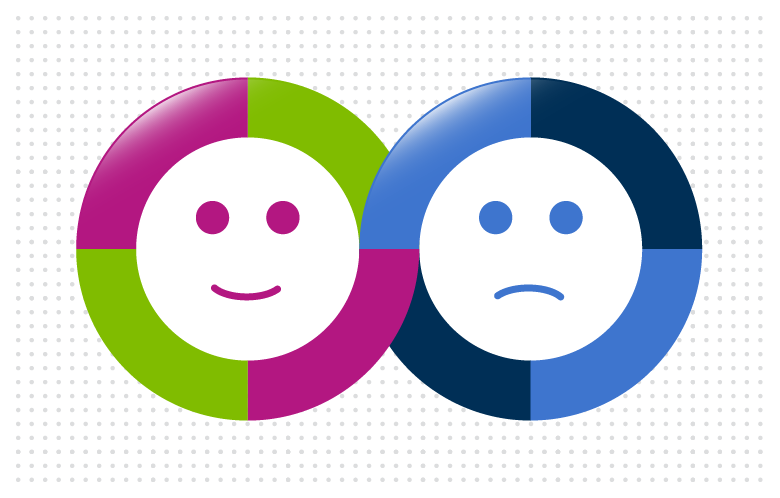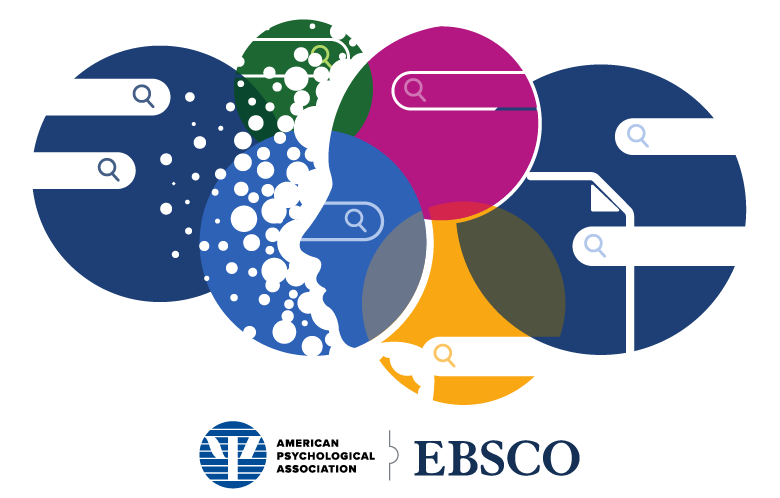With APA PyscTests®, the American Psychological Association (APA), delivers an authoritative source of structured information about tests of interest to a variety of fields. We recently interviewed Alvin Walker, Jr., Director for Research Products at the APA and he shared insights into the mission of APA PsycTests. Drawing from a rich and varied career in clinical practice, research, and information science, Walker discusses how PsycTests supports psychology research and education by providing access to reliable, non-commercial testing instruments and essential psychometric data.
Can you tell us a bit about your background and experience in the field of psychology and how it has influenced your work with APA PsycTests?
I earned undergraduate and graduate degrees in psychology from the George Washington University. Over the course of my career in psychology, I have worn many hats! At the beginning of my career, I was employed at a federally funded psychiatric teaching hospital providing mental health care and assisting patients in achieving their therapeutic goals. After a short stint doing clinical work, I accepted a researcher position in a Washington, DC consulting firm, focusing on social science research, where I was able to hone my research skills. Several years later, I joined the Research and Technology Group as a civilian research associate in the Naval Air Systems Command, US Department of Defense (DoD), working closely with the Lieutenant Commander for Human Factors Engineering. After departmental budget cuts, I left my position at the DoD, and I was hired by the APA as a Sr. Indexer/Search Analyst and Editor of the Thesaurus of Psychological Index Terms, a position I held for more than 15 years before moving into my current role as Director for Research Products in APA’s Product Management Department.
Can you provide an overview of APA PsycTests and its primary purpose?
APA PsycTests was launched 13 years ago and is considered a one-of-a-kind database of psychological tests and measures designed specifically for use with social and behavioral science. APA PsycTests is updated monthly with new content, more than other testing resources that have less frequent updates. Over the course of 13 years, our highly skilled editorial staff has created more than 75,000 test records!
To give you a little bit of background about psychological testing, the growth and proliferation of new tests in psychological science is a huge challenge and concern for psychologists. Thousands of new measures are created each year and most of these measures are used once or at best, only a few times. The redundancy we see in tests measuring the same construct can threaten the credibility of psychological research and stifle scientific progress. Standardized formats for comparisons, statistical analyses, and even study replications become more difficult. So, when APA PsycTests was launched the vision for the product was to help reduce the incidence of researchers duplicating and re-creating tests that contribute to this growth in testing instruments.
It should not come as a surprise that creating new tests from scratch is time-consuming, involves very complex processes, and it can even be considered cognitively demanding. Researchers often complain about not having a comprehensive testing resource to turn to! To address this specific pain point, we created APA PsycTests to be a repository of both valid and reliable non-commercial testing instruments to supplement the well-established commercial test market. We wanted to create a product that could be used not only by researchers, but also graduate students and even clinicians working in mental health.
Is artificial intelligence and machine learning having an impact on databases like APA PsycTests?
Absolutely. One of the things that I worry about is the use of AI, ChatGPT, and other models to generate or construct new tests and test items. Advances in AI, particularly Generative AI, makes it easier now to construct tests faster than it takes to actually find existing test for research. But, as history has shown, faster doesn’t always mean better! Prioritizing speed over quality can often lead to test construction errors like ambiguous questions and biased results when a slower, more deliberate approach would be more effective. I fear that AI and other tools will eventually lead to more chaos and confusion in the field of test construction and psychometrics. Of course, AI in testing isn’t entirely negative. Responsible and ethical AI can and does play a major role in scoring of tests results and statistical analysis of large amounts of testing data among other things.
What types of tests and assessments are included in APA PsycTests?
APA PsycTests covers a wide variety of testing instruments, including rating scales, test batteries, screeners, surveys, inventories, questionnaires, and even vignettes and non-projective techniques. However, we don’t cover tests or instruments for use in research with animal populations.
APA PsycTests contains tests that measure thousands of different testing constructs in core psychology, our bread and butter. Because psychology is interdisciplinary by nature, our coverage goes beyond core psychology and includes tests to measure constructs in other disciplines such as nursing, marketing and advertising, forensics, economics, artificial intelligence, and much more. We like to think of APA PsycTests as a one-stop shop for tests in all disciplines that have practical applications to real world problems!
Even though we created APA PsycTests to be a repository for non-commercial tests used in research, we have built partnerships with some commercial test publishers to include over 1,000 commercial test metadata records. Database records for these types of tests are extremely important because they enhance the non-commercial testing instruments in APA PsycTests by providing comparative standardized testing data.
“We like to think of APA PsycTests as a one-stop shop for tests in all disciplines that have practical applications to real world problems!”
“We like to think of APA PsycTests as a one-stop shop for tests in all disciplines that have practical applications to real world problems!”
In what way can academic librarians utilize APA PsycTests to support research and teaching in psychology?
APA PsycTests is an unparalleled resource for librarians to help both researchers and students conduct research and to give them access to the tools and instruments that are necessary to support that research. It is an ideal starting point for researchers and students to find psychometric analyses or testing methodologies that they can use in their specific research studies. Most importantly, librarians can help graduate students save countless hours in developing new testing instruments in support of their dissertation work. And, finally, librarians can help researchers, historians, and those interested in the history of psychology, to trace the lineage and the development and evolution of psychological tests over periods of time.
What are some specific ways psychologists use APA PsycTests?
Psychologists and students use APA PsycTests for a variety of purposes. Some things that come immediately to mind include finding psychometric data about specific tests (e.g., validity and factor structure data), finding tests to use with a specific population (e.g., adolescents or older adults), finding tests to measure specific psychological constructs (e.g., emotional stability or self-esteem), and simply to contact an author of a test to seek permission to modify or adapt a test.
Finding tests to measure new and emerging constructs (e.g., PPE usage or Covid-19 vaccine adoption), which are unlikely to have a commercial test counterpart, can be challenging for researchers. APA PsycTests provides a very useful resource for tests that measure current and contemporary constructs.
APA PsycTests is also used heavily by educators or instructors to teach psychological testing theory or to find specific examples to illustrate psychometric concepts or principles in the psychological testing courses that they teach.
I would be remiss, if I didn’t highlight that we cover over 500 historical tests that were only available in print from the University of Ohio Cummings Center on the History of American Psychology Archives in Akron. APA worked with the Center staff to digitize these older tests. Some of these tests included personality scales and intelligence tests from the early 1900s, and some of the very first civil service tests, which were developed by psychologists. Many of these tests were used for military recruitment in both World War 1 and World War 2. We have test records that date back to the late 1890s! These tests are extremely important for historians working in the field. Personally, I find this historical content the most fascinating material in APA PsycTests to go through, and have a cup of coffee or tea, and enjoy! It’s like curling up with a good book!
What are the key features of APA PsycTests that differentiate it from other psychological test databases?
APA PsycTests has many cool features! Let me highlight a few for you.
One of the best features of APA PsycTests is the comprehensive structured information about psychological tests, with nearly 30 descriptive metadata fields to describe each test, which helps provide very targeted search and discovery of testing information. We capture the purpose of the test, an informative description, the type of test, administration method, languages that are available, permissions details, and much more.
This extensive metadata tagging saves researchers time by helping them to quickly and efficiently pinpoint and identify appropriate tests for their research. It’s important to mention that APA PsycTests is indexed using the Thesaurus of Psychological Index Terms, the same controlled vocabulary used to index other APA databases such as APA PsycInfo® and APA PsycArticles®.
Another great feature that I like is that APA PsycTests captures multiple versions of a test, so a researcher can find versions or modifications to some of the original early testing instruments. This was the original vision for the product—being able to find a short or brief form or a long form of a test or tests that have been modified for different languages or cultures, different communities, or even age groups is important.
But, one of the features that really sets APA PsycTests apart compared to other testing products is the easily findable psychometric data. Psychometric data is the one most important feature of any testing product. Researchers want and need access to psychometric data, such as a test’s reliability, validity, factor structure data, and even item-generation process details to help them properly evaluate the soundness of testing instruments.
Furthermore, we provide one-click access to PDFs of tests or test items that can be easily downloaded which allows these tests to be used, in some cases, almost immediately for research. Approximately 50% of tests in APA PsycTests contain the full text of a test or test items.
And finally, we link directly to the original source document, the journal article or chapter, or other source where the test was used or developed, which assists the researcher, or student, in putting the actual test and the research behind it into some sort of context. This is a feature that researchers have applauded and really do appreciate.
How does APA PsycTests handle ethical considerations related to the use of psychological tests?
APA PsycTests is a database of non-commercial testing instruments, so usage of the database is strongly encouraged for research, educational, and teaching purposes. In fact, at least 60% of the tests in APA PsycTests can be used for research without permission from the author or publisher and can be used freely for teaching or Illustrative purposes. We always give attribution to the author of the test and provide contact and affiliation information, and we encourage our researchers and students to always do the same when using these tests for their research projects or when they consider publishing their work.
What resources or support does APA PsycTests offer to help users interpret and apply the results of the tests?
APA PsycTests contains supporting documentation for some tests when it is made available to us by the author or publisher. This material contains test guides, directions or instructions, answer sheets, norms and analyses, and other testing materials to support the development of the test. With the inclusion of links to the research behind the development or use of the test, researchers have additional context to understand the purpose of the test, how the test was administered, and how results were quantified and interpreted.



